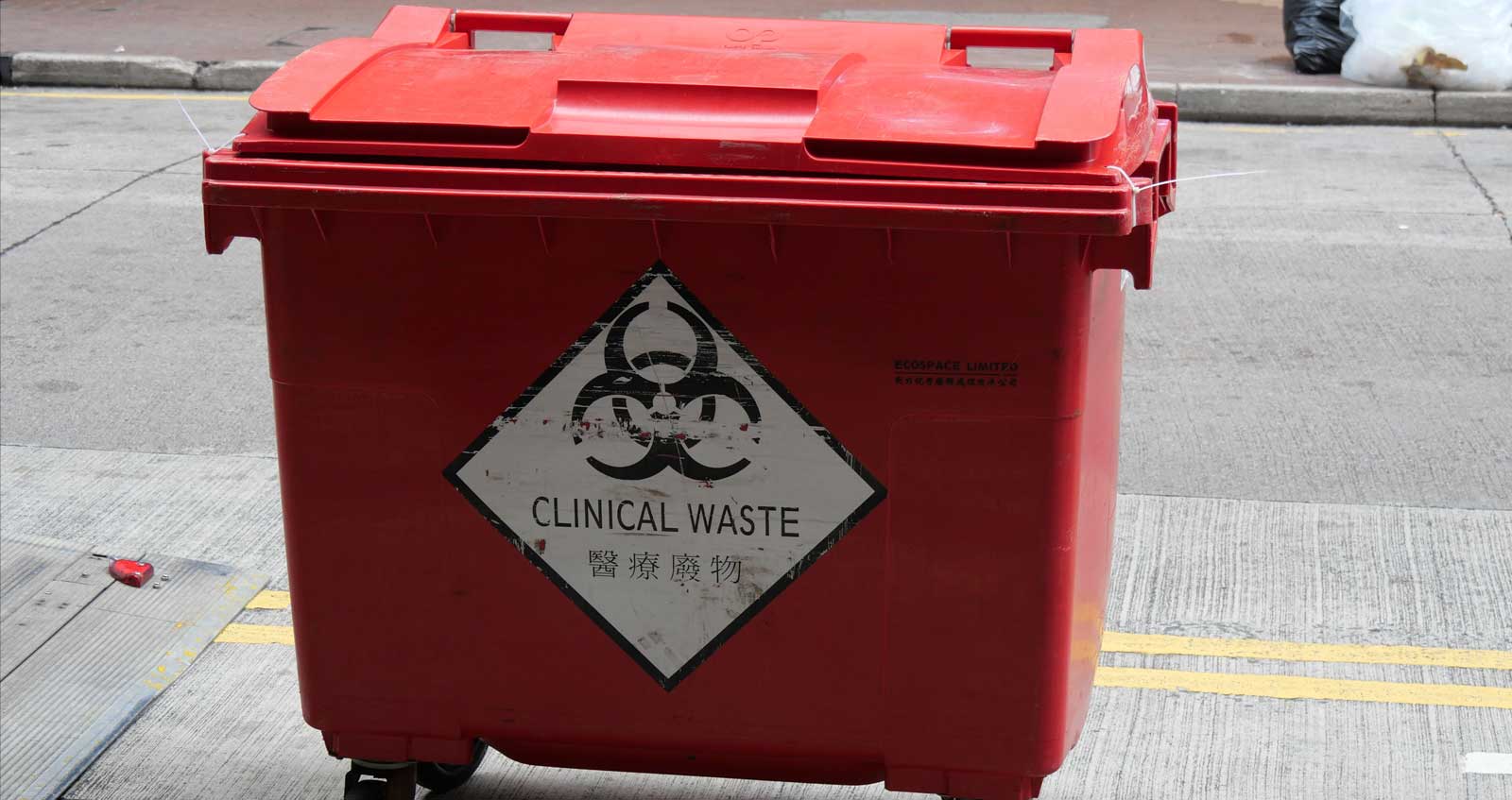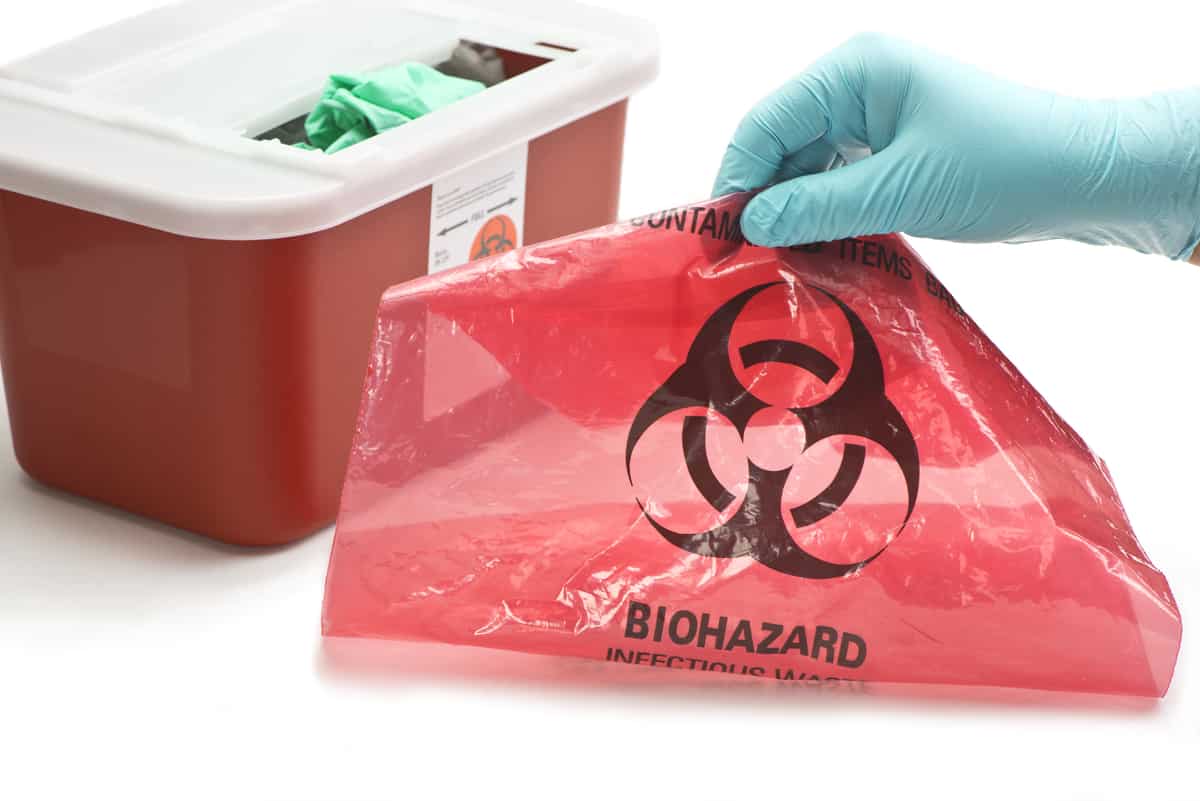Safeguarding Wellness: Expert Medical Waste Removal Services for a Clean Atmosphere
Safeguarding Wellness: Expert Medical Waste Removal Services for a Clean Atmosphere
Blog Article
The Relevance of Appropriate Clinical Garbage Disposal: A Guide for Healthcare Facilities
Appropriate clinical waste disposal is a vital aspect of medical care facility monitoring, making certain the security and wellness of patients, staff, and the setting. From understanding the various categories of clinical waste to abiding by governing requirements, healthcare facilities must take on reliable waste segregation practices and choose suitable disposal techniques. However, the importance of proper clinical garbage disposal surpasses plain conformity; it is an obligation that calls for ongoing training and education for team. In this overview, we will certainly check out the various aspects of clinical waste disposal and highlight the necessary steps that health care facilities need to take. By applying these practices, medical care facilities can mitigate risks, protect public wellness, and contribute to a cleaner, more secure atmosphere.
Recognizing Clinical Waste Categories
Understanding medical waste groups is crucial for appropriate disposal in health care facilities. Clinical waste is a broad term that incorporates different sorts of waste generated in healthcare setups, such as medical facilities, laboratories, and centers. Classifying medical waste helps ensure that it is taken care of, saved, and disposed of safely and according to relevant laws.
There are several groups of medical waste that healthcare facilities need to be aware of. These categories consist of transmittable waste, sharps waste, pharmaceutical waste, chemical waste, and radioactive waste (medical waste disposal services with WasteX). Each category has details features and needs different disposal techniques to decrease the danger of damage to medical care employees, individuals, and the environment
Infectious waste, for instance, refers to throw away polluted with possibly infectious materials, such as blood, body fluids, and cells. Sharps waste includes needles, syringes, and various other sharp things that can create injury or transmit infections. Pharmaceutical waste contains ended or unused medications, while chemical waste is composed of unsafe chemicals used in clinical treatments. Contaminated waste includes materials infected with radioactive materials, such as nuclear medicine products.
Compliance With Regulatory Requirements
Medical care centers should make sure compliance with regulative demands for appropriate clinical waste disposal. Regulative bodies, such as the Environmental Protection Agency (EPA) and the Occupational Safety And Security and Wellness Management (OSHA), have actually established guidelines and guidelines to secure public health and wellness and the setting. These regulations lay out the appropriate handling, storage, transportation, and disposal of medical waste.
Conformity with governing needs is important for health care centers to avoid legal charges, reputational damage, and potential damage to human health and the environment. Failure to abide by these guidelines can result in penalties, lawsuits, and also the suspension or cancellation of running licenses.
To ensure conformity, healthcare facilities must establish thorough waste monitoring programs that include team training, proper waste segregation, and making use of proper containers and tags. Regular audits and assessments should likewise be performed to identify any type of non-compliance issues and resolve them promptly.
It is necessary for health care facilities to keep up to date with changes in policies and update their waste monitoring methods accordingly. This can be attained by actively checking updates from governing bodies and participating in training programs and workshops.
Implementing Efficient Waste Partition Practices
To ensure appropriate clinical waste disposal, medical care facilities have to carry out efficient waste partition methods. Waste partition is a vital action in the overall waste management process, as it aids minimize the threat of infection, protects against cross-contamination, and ensures the safe disposal of different types of waste. Efficient waste partition techniques involve separating clinical waste right into various groups based upon its features and possible risks.
One common practice is the partition of sharps waste, such as scalpels and needles, from other kinds of clinical waste. Sharps waste need to be placed in puncture-resistant containers to stop injuries and potential infections. Additionally, hazardous waste, such as chemicals and pharmaceuticals, need to be divided from general medical waste to stop environmental contamination.
Appropriate labeling and color-coding of waste containers are vital for efficient waste partition. Clear and noticeable tags must be positioned on each container to show the sort of waste it consists of and any kind of unique handling demands - medical waste disposal services with WasteX. Additionally, color-coding can be made use of to differentiate in between different waste classifications, making it less complicated for health care personnel to get rid of and determine of waste correctly
Regular training and education and learning for medical care team is vital for the effective application of waste segregation methods. Personnel should be informed on the various waste classifications, correct segregation methods, and check that the relevance of complying with waste monitoring methods. This will certainly help make certain conformity and uniformity in waste segregation methods throughout the center.
Finding Appropriate Disposal Methods
Correct option of ideal disposal techniques is necessary in ensuring the secure and environmentally accountable management of medical waste in medical care facilities. Medical care facilities produce a selection of clinical waste, consisting of sharps, infectious waste, pharmaceutical waste, and chemical waste - medical waste removal services. Each sort of waste needs specific disposal techniques to decrease the threat of contamination, injury, and ecological damage
One usual disposal approach for medical waste is incineration. Incineration involves the controlled burning of waste at high temperatures.

Chemical sanitation is one more method used for sure sorts of medical waste, such as pharmaceutical waste. This approach uses chemicals to neutralize or destroy impurities. It is vital to select chemicals that are risk-free and eco friendly.
In many cases, land fill disposal might appropriate for non-hazardous clinical waste (medical waste disposal services with WasteX). Nonetheless, proper segregation and product packaging are vital to avoid leak or contamination.
Inevitably, medical care centers need to meticulously review the features of their clinical waste and select proper disposal techniques that prioritize safety, environmental defense, and regulative conformity. Regular training and surveillance are vital to make sure that medical care team complies with proper disposal methods.

Training and Educating Team on Proper Disposal Treatments
Staff education and training play a vital duty in guaranteeing the appropriate disposal of clinical waste in medical care facilities. It is essential that all employee, including medical professionals, nurses, technicians, and support team, receive detailed training on correct disposal procedures. This training needs to cover the various types of medical waste, their possible hazards, and the appropriate techniques for managing, segregating, and throwing away them.
Among the main objectives of team education and training is to guarantee that all medical care professionals recognize the relevance of correct disposal procedures and the potential consequences of improper waste administration. They require to be knowledgeable about the dangers connected with medical waste, such as the transmission of infections and the contamination of the setting. medical waste removal near me. By comprehending these risks, personnel members will certainly be more motivated to adhere to correct disposal protocols and take the essential precautions to safeguard themselves, their associates, and the community
Training ought to likewise cover using personal safety tools (PPE) and the proper strategies for dealing with clinical waste. Team participants need to be informed on how to recognize and segregate various kinds of waste, such as sharps, infectious waste, and harmful chemicals. They ought to additionally be trained on the proper use waste containers, such as sharps containers this post and biohazard bags, along with the importance of labeling and sealing these containers correctly.
In addition, personnel education and training ought to consist of regular updates and refresher courses to guarantee that health care specialists stay notified regarding the most up to date regulations and ideal techniques in clinical garbage disposal. This continuous education and learning is crucial to keep a high degree of recognition and compliance amongst employee.
Conclusion
Finally, proper medical garbage disposal is of utmost value for health care centers. Recognizing the different classifications of medical waste and adhering to regulative demands ensures the safety and health of both medical care workers and the public. Implementing efficient waste segregation techniques and picking appropriate disposal approaches are critical in stopping the spread of transmittable conditions and safeguarding the environment. Finally, training and educating personnel on appropriate disposal procedures is important for maintaining a safe and tidy healthcare center.
From comprehending the different groups of clinical waste to abiding with regulative demands, healthcare facilities need to adopt efficient waste segregation techniques and choose suitable disposal approaches. These groups include transmittable waste, sharps waste, pharmaceutical waste, chemical waste, and contaminated waste.To make you could try here sure correct clinical waste disposal, medical care facilities need to implement reliable waste partition practices. Waste partition is a vital action in the general waste management process, as it assists minimize the threat of infection, avoids cross-contamination, and ensures the secure disposal of various kinds of waste. Medical care facilities produce a variety of medical waste, including sharps, contagious waste, pharmaceutical waste, and chemical waste.
Report this page